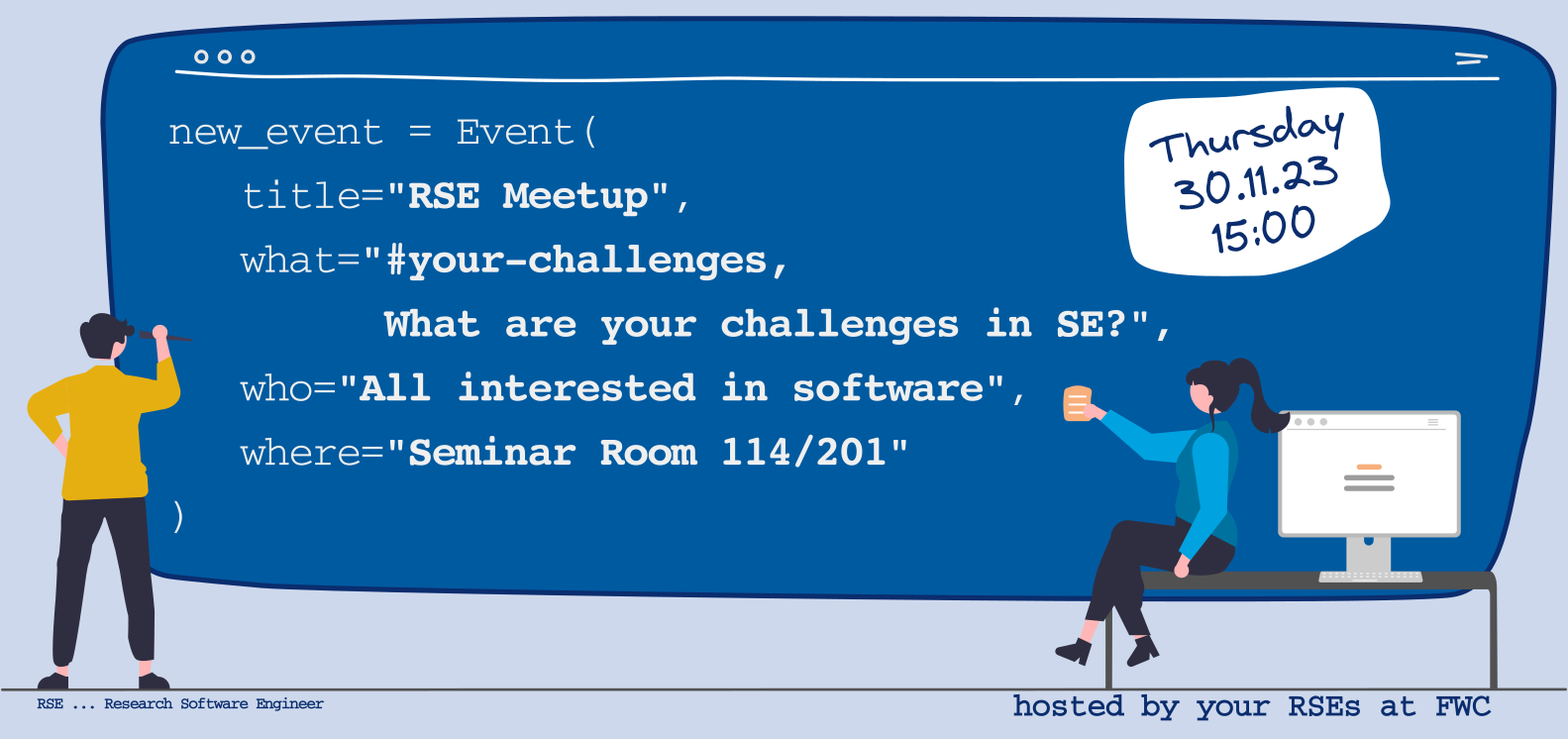RSE Meetup
HZDR Conference Building
Do you deal with software for science? -- Let's talk about it!

We aim to foster connections and ignite discussions among our community. Do you have a burning topic that you're eager to share with us? Here's your chance!
We're offering 3-5 slots for 5-minute pitch talks to pique everyone's interest. Afterward, we'll break into smaller groups for more in-depth discussions. Submit your topic now and let's spark engaging conversations! Topics may include, but are not limited to:
- Interesting Features in the World of Software Engineering
- Unraveling Your Toughest SE Challenges
- Sharing Your Brilliant Solutions to SE Conundrums
- Exploring Any SE-Related Topics
Your input is invaluable to us! Feel free to contribute your topic via an issue right here. We've even provided slide templates in the repository to help you along the way.
Our ultimate goal is to create a framework that welcomes both experts and beginners who share an interest in software-related topics. Join us as we cultivate meaningful connections and knowledge-sharing within our community.
TLDR
Add your topic here (direct link)
Link to event overview presentation
